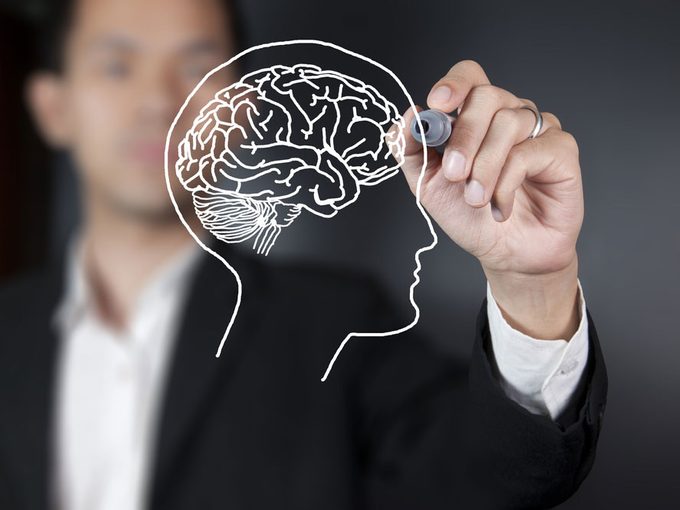Brain Health Tips to Keep You Young
You exercise your body, so why not your brain? Follow these brain health tips to keep your mind sharp

We spoke to the experts at Baycrest Health Sciences to learn more about what you can do to keep your brain sharp as you age. Read on for seven brain health tips and be sure to check out The Brain Project, a fundraising initiative taking place in Toronto this summer. Proceeds from the art and sculptures sold at The Brain Project will support care and research into Alzheimer’s and age-related dementia.
Cut the stress!
This first tip may seem obvious (we know stress is bad for health), but it’s an important one. According to a recent scientific review paper, led by the Rotman Research Institute at Baycrest Health Sciences, people with chronic stress and anxiety in their lives may be at increased risk for developing depression and even dementia.
Try a ballroom dancing class
Ballroom dancing is one of the best workouts for brain health because it combines physical exercise, cognitive engagement (complicated steps requiring constant problem-solving), and social engagement. “While all three factors are beneficial alone, together they seem to be the magic bullet,” says Dr. Susan Vandermorris, neuropsychologist at Baycrest Health Sciences. Fun fact: One of the most famous ballroom dancers, Fred Astaire, lived to the age of 88.
Complex thoughts require complex carbs
Make sure you’re eating enough complex carbs, such as whole grains, to keep your brain in top shape. Dr. Carol Greenwood, a senior scientist at Baycrest’s Rotman Research Institute, says we need healthy or normal insulin function in the brain-it’s a component of learning and memory processing. “Poor quality carbs can damage insulin metabolism, promoting diabetes, cognitive decline and Alzheimer’s disease,” says Dr. Greenwood.
Brain-teasing games can help with memory. Challenge yourself with our Daily Crossword Puzzle.
Speaking of a healthy diet…Ditch the chips and salty snacks
A study conducted by Baycrest showed that a diet high in salt, combined with little exercise, was especially detrimental to the cognitive performance of older adults. Fortunately, it is never too late to change your lifestyle and begin making more health-conscious decisions. (Try our healthy meal plan for breakfast, lunch and dinner ideas.)
Give back
A growing body of evidence is proving that older adults who volunteer are both happier and healthier. In addition to the feel-good benefits, here are a few key health benefits:
• Volunteering is associated with reductions in symptoms of depression, better overall health, fewer functional limitations, and greater longevity.
• More vulnerable seniors (i.e. those with chronic health conditions) may benefit the most from volunteering.
• Feeling appreciated or needed as a volunteer appears to amplify the relationship between volunteering and psychosocial wellbeing.
Please don’t stop the music
According to Dr. Amy Clements-Cortes, senior music therapist, music can help to elevate your mood, relieve pain, reduce stress, and stay sharp and social.
Unleash your inner artist
Art awakens memories, encourages dialogue and inspires the sharing of ideas – whether you’re creating a piece of art or simply appreciating a painting on the wall. Incorporate art into your lifestyle by visiting an art gallery or picking up a paintbrush. You’ll find more satisfaction in life and enjoy the brain benefits for years to come.
Bonus Quiz: Do you have as much knowledge as a wise old elder or is your brain filled with reality shows and useless information? Take the quiz and find out!




